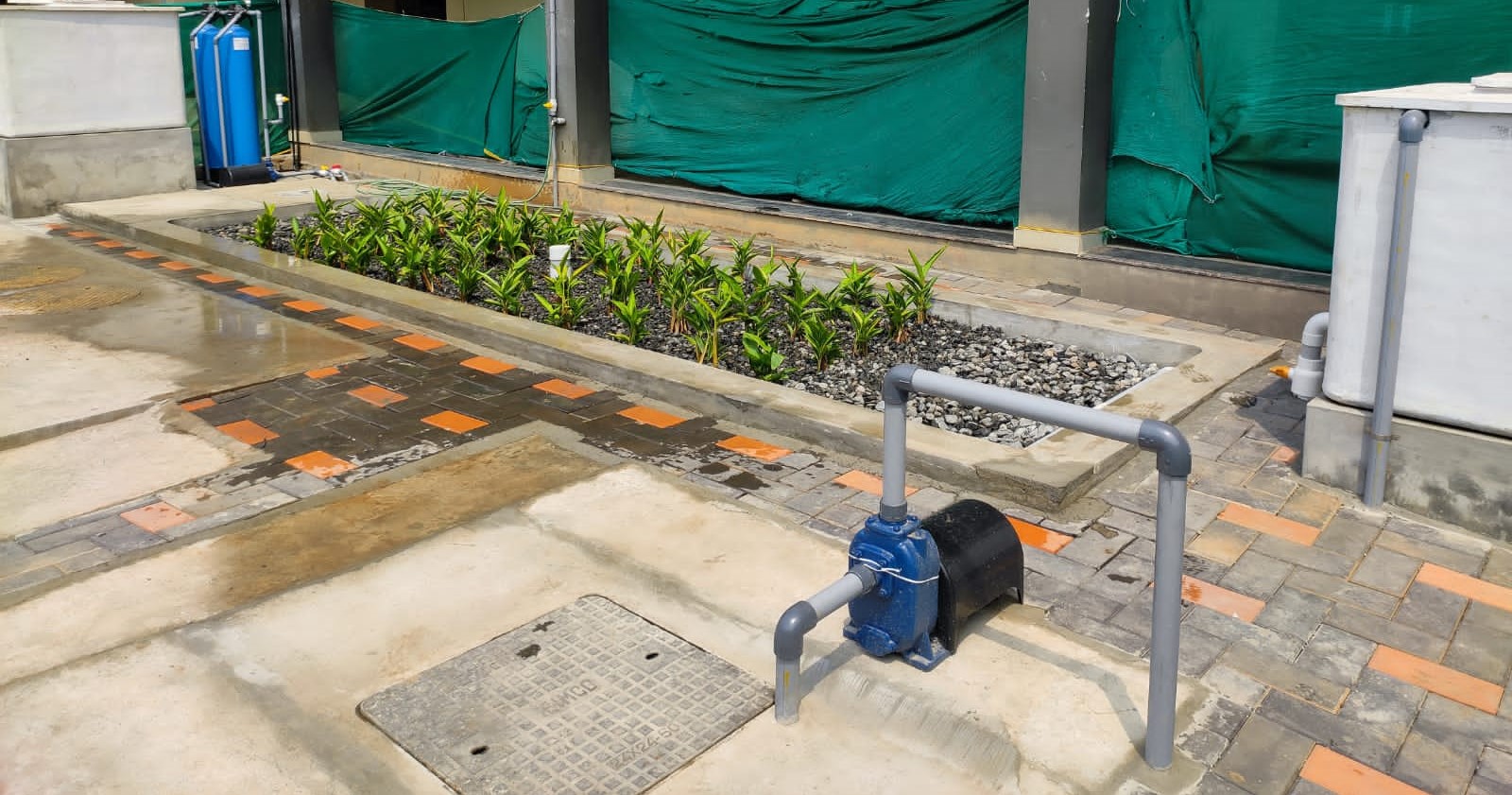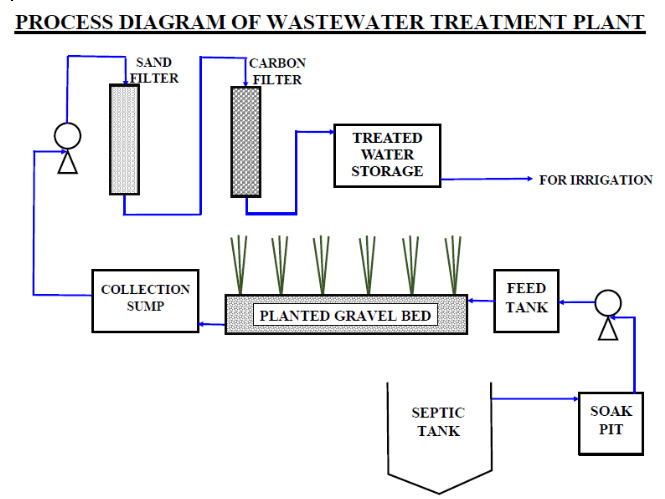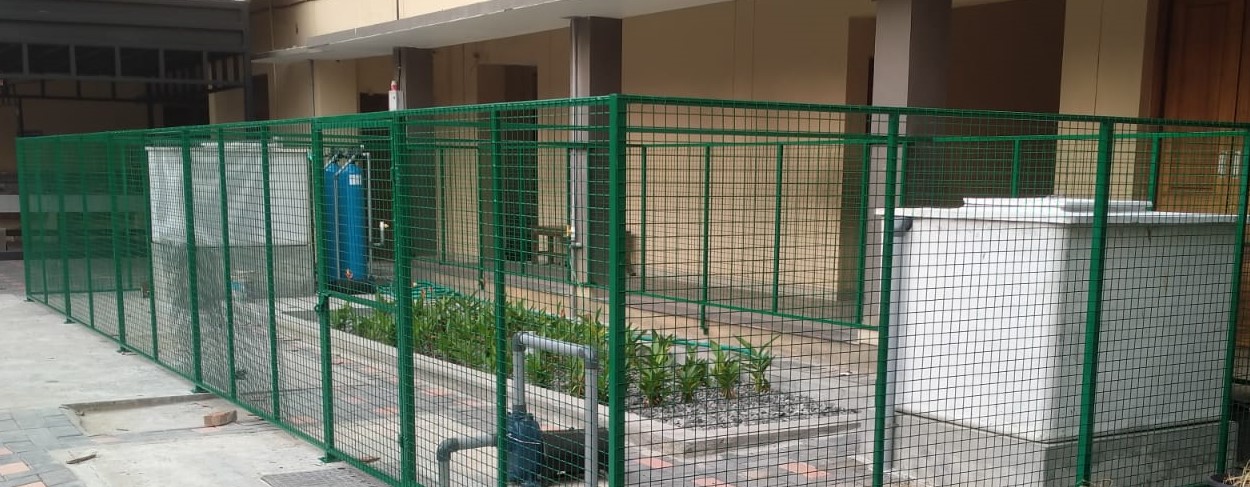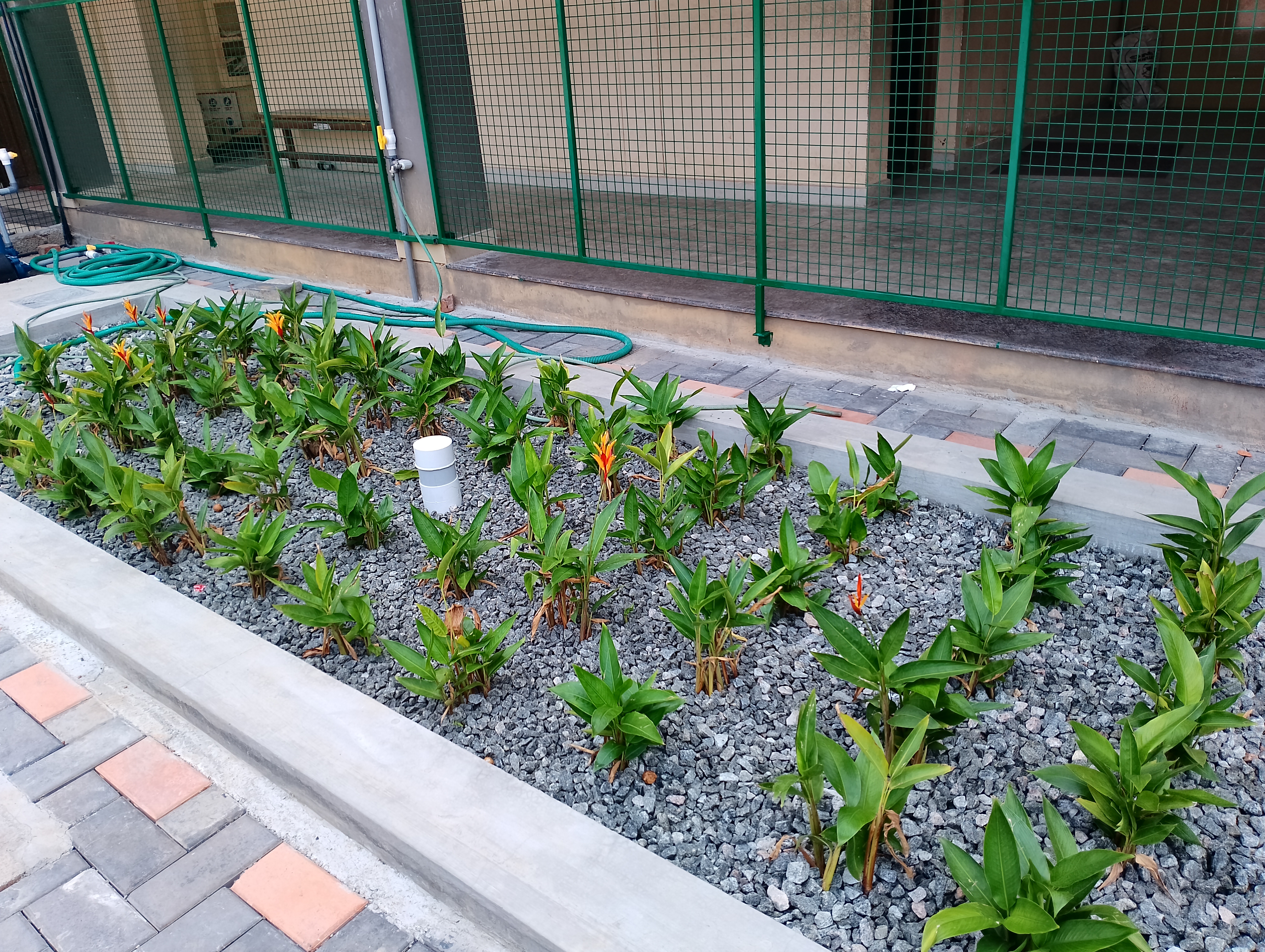Nature Based Sewage Treatment Plant

Nature-based sewage (NBS) treatment is a decentralized approach that blend into the neighbourhood more easily than technical solutions. It is a simple method that has additional benefits like cooling effect and also increase the biodiversity.
The pilot installation is implemented at Elamakkara Government Higher Secondary School. It showcases the feasibility of a nature-based treatment of wastewater in an urban setting.

In a general urban setting, the overflow from the septic tank usually seeps into the ground through a soak pit and thus pollutes the groundwater. In this NBS system, the overflow from the septic tank is channelled into a Planted Gravel Filter, through which the water flows horizontally. Bacteria on the gravel and soil together with the plants growing on it purify the sewage. In order to prevent mosquito breeding, the water will flow underneath the surface. Thus, no odour emissions will occur. The water will be distributed evenly over the filter by a collection and distribution chamber. On dry days, a part of the water will evaporate via the plants and the soil, reducing the local temperature significantly. After the gravel filter, the rest of the water is collected and pumped through a pressurized sand and carbon filter to remove solids and organic that is difficult to degrade biologically. After this final purification, the water is collected and reused for irrigation.
Why should we adopt NBS system?
- Untreated sewage damages human health and the environment, leads to odour emissions
- On dry days, a part of the water will evaporate via the plants and the soil, reducing the local temperature significantly.
- It promotes biodiversity, creating new habitats and enhancing water resilience
- It is both economic and sustainable and can be easily adopted

